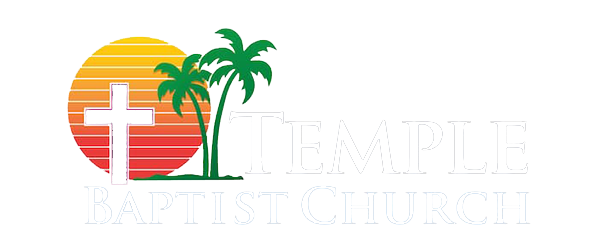Baptist Beliefs
Baptist Distinctives
We believe the historical teachings of Baptists are faithful to and consistent with New Testament principles and practice; though the use of the term “Baptist” does not guarantee affirmation of these. We also believe, while no New Testament believer called himself a “Baptist,” it is clear Baptist Distinctives were commonly held and practiced.
The Baptist Distinctives may be summarized by the use of a simple acrostic, as follows:
Biblical Authority
The Bible is the only, sufficient, and final authority for all matters of faith and practice (II Timothy 3:16, 17).
Autonomy of the Local Church
Each local church is sovereign in and of itself and cannot be controlled by any board, hierarchical system, association, or even another church (I Timothy 3:15; Acts 15). Each has the responsibility for electing its own officers (Acts 6:1-7), sending out missionaries (Acts 13:1-4; 14:26, 27), and exercising final authority in disciplinary matters (Matthew 18:15-18; I Corinthians 5:1-5; II Thessalonians 3:14, 15).
Priesthood of Believers
Every “born again” believer may pray without human intercessor directly to God through our High Priest Jesus Christ (I Timothy 2:5; Hebrews 4:14-16; Revelation 1:5, 6).
Two Scriptural Ordinances
Believer’s Baptism – Baptism of a believer by immersion is a step of obedience which identifies him or her with Christ’s death, burial, and resurrection (Acts 2:41, 42; Romans 6:3, 4).
The Lord’s Supper – This ordinance was instituted by the Lord as a memorial to His death which is to be practiced by believers until His return (Matthew 26:26-30; Acts 2:41-43; I Corinthians 11:25, 26). These ordinances are not to be administered or partaken of apart from the local church.
Individual Soul Liberty
Every Christian has the right to interpret the Scriptures, to hold, profess, and to worship as he or she believes the Bible teaches (John 16:12, 13; I John 2:27). These things are not to be forced upon anyone and all must give account to the Lord Jesus Christ (Romans 14:10-12; II Corinthians 5:10).
Saved Church Membership
The membership of a New Testament local church is to consist of only those who have openly confessed Jesus Christ as Savior, demonstrated a willingness to obey the teachings of the Bible, and who agree with the doctrine and standards of the local church (Acts 2:41, 47).
Two Scriptural Offices
There are only two offices in the local church recognized and required by the Bible, Pastor (Philippians 1:1; I Timothy 3:1-6; Titus 1:6-9) and Deacon (Acts 6:2-7; Philippians 1:1; I Timothy 3:7-13).
Separation of Church and State
Every believer should respect, sustain, and pray for civil authority (Romans 13:1-7; I Timothy 2:1-6; Titus 3:1; I Peter 2:13-17), and should obey it so long as it does not cause violation to conscience or Scriptural convictions (Acts 5:29). There should be no organic union of church and state; but the state should protect, and neither dominate nor interfere with the affairs of the local church (Matthew 22:21).
Join Us At Our New Location
We have relocated and are now meeting in the Camelot Lakes Village Community Center. This is off of Gantt Road between Proctor and Clark Roads in south Sarasota. We are currently holding a 10:00 am Sunday morning service each week and would be honored to have you visit. When you arrive you can let the person at the community entrance know you want to attend the church service and you will be granted access. If you have any questions about our specific location you may reach the pastor at the church number.
